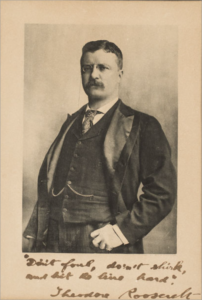By Art and Nature, if thou well recall
How Genesis begins, man ought to get
His bread, and make prosperity for all.
But the usurer contrives a third way yet,
And in herself and in her follower, Art,
Scorns Nature, for his hope is elsewhere set.[Da queste due, se tu ti rechi a mente
lo Genesì dal principio, convene
prender sua vita e avanzar la gente;
e perché l’usuriere altra via tene,
per sé natura e per la sua seguace
dispregia, poi ch’in altro pon la spene.]Dante Alighieri (1265-1321) Italian poet
The Divine Comedy [Divina Commedia], Book 1 “Inferno,” Canto 11, l. 106ff (11.106-111) [Virgil] (1309) [tr. Sayers (1949)]
(Source)
In Genesis (Gen. 2:15, 3:17-19), God ordains humanity is to survive gathering plants and resources (Nature) and through toil and "the sweat of his face" (Art or Industry) . Usurers are deemed evil because they gain wealth from interest on money-lending (or, by extension, any financial investments), producing money from money, not from productive work. They are considered in Dante's scheme as bad as blasphemers and perverts, and worse sinners than murderers or suicides. See commentary from Sayers and Durling.
(Source (Italian)). Alternate translations:
And if you recollect
Your Genesis, you'll know that from these two
Mankind should Life, Tillage the Earth receive.
But, because Us'ry takes another way,
Despising Nature and your daughter Art,
It God displeases, and incurs his wrath.
[tr. Rogers (1782), l. 101ff]
But from her hallow'd path the Miser strays,
Who lets pale A'rice warp his sordid ways,
Invet'rate foe to Nature's simple lore,
Beneath his influence grows the barren gold.
He speaks, and lo! the parent sums unfold
In monstrous births, a misbegotten store.
[tr. Boyd (1802), st. 16]
These two, if thou recall to mind
Creation’s holy book, from the beginning
Were the right source of life and excellence
To human kind. But in another path
The usurer walks; and Nature in herself
And in her follower thus he sets at nought,
Placing elsewhere his hope.
[tr. Cary (1814)]
Both these to man, if thou refresh thy mind
In Genesis' early writ, the Word ordains
His life to foster, and advance his kind.
But other way takes Usance to his gains,
And, choosing other hope, a scornful war
With Nature and her handmaid Art maintains.
[tr. Dayman (1843)]
By these two, if you recallest to thy memory Genesis at the beginning, it behoves man to gain his bread and [to prosper].
And because the usurer takes another way, he contemns Nature in herself and in her follower, placing elsewhere his hope.
[tr. Carlyle (1849)]
From these two, if right considered in the mind,
From first of Genesis the truth receive,
Life and advancement to the nations gave.
But usury has ta'en another way,
Despising nature and her handmaid Art,
Far other hopes his light of life impart.
[tr. Bannerman (1850)]
From these two, then, if thou in mem'ry hold'st
The earlier Genesis, it is decreed
That life must spring, and man's increase must come.
But then the usurer treads another path;
Nature and her attendant both he scorns,
Since in another means he places hope.
[tr. Johnston (1867)]
From these two, if thou bringest to thy mind
Genesis at the beginning, it behoves
Mankind to gain their life and to advance;
And since the usurer takes another way,
Nature herself and in her follower
Disdains he, for elsewhere he puts his hope.
[tr. Longfellow (1867)]
From these two, if thou bring to thy mind Genesis, towards the beginning, it behoves folk to take their life, and to prosper. And because the usurer holds another course, he despises Nature both for herself and for her follower; because he places his hope in another thing.
[tr. Butler (1885)]
From Art and Nature, if thou bring'st to mind
The verse of Genesis, 'tis doomed alone
That man should live and carry on his kind.
And since to usurers other ways are known,
Both Nature and her follower stand confest
Outraged by those whose trust is elsewhere shown.
[tr. Minchin (1885)]
By means of these two, if thou bringest to mind Genesis at its beginning, it behoves mankind to obtain their livelihood and to thrive. But because the usurer takes another course, he despises Nature in herself, and in her follower, since upon other thing he sets his hope.
[tr. Norton (1892)]
By these two, if thou recallest to thy mind an early page in Genesis, doth it behove mankind to win their means of life, and to excel. And for that the usurer goeth another way, he slighteth nature both in herself and follower, putting his trust elsewhere.
[tr. Sullivan (1893)]
From these two, if thou bring' st to recollection
Genesis at its opening, it must needs be
That folk do take their living and make progress.
And, since the usurer keeps another pathway,
Nature, both for herself and for her daughter,
Contemns he, since his hope elsewhere he places.
[tr. Griffith (1908)]
By these two, if thou recall to mind Genesis near the beginning, it behoves mankind to gain their livelihood and their advancement, and because the usurer takes another way he despises nature both in herself and in her follower, setting his hope elsewhere.
[tr. Sinclair (1939)]
By these two, if thy memory Genesis
Recalls, and its beginning, man hath need
To gain his bread and foster earthly bliss.
But the usurer, since he will not thus proceed,
Flouts Nature's follower and herself also,
Setting his wealth another way to breed.
[tr. Binyon (1943)]
By this, recalling the Old Testament
near the beginning of Genesis, you will see
that in the will of Providence, man was meant
to labor and to prosper. But usurers,
by seeking their increase in other ways,
scorn Nature in herself and her followers.
[tr. Ciardi (1954)]
By these two, if you remember Genesis at the beginning, it behooves man to gain his bread and to prosper. But because the usurer takes another way, he contemns Nature in herself and in her follower, for he puts his hope elsewhere.
[tr. Singleton (1970)]
From Art and Nature man was meant to take
his daily bread to live -- if you recall
the book of Genesis near the beginning;
but the usurer, adopting another means,
scorns Nature in herself and in her pupil,
Art -- he invests his hope in something else.
[tr. Musa (1971)]
From these two, art and nature, it is fitting,
if you recall how Genesis begins,
for men to make their way, to gain their living;
and since the usurer prefers another
pathway, he scorns both nature in herself
and art, her follower; his hope is elsewhere.
[tr. Mandelbaum (1980)]
From these two, if you recall to mind
The beginning of Genesis, it is proper for man
To win his bread and to advance his race:
And because the usurer takes another way,
Treating nature and what follows from her
Contemptuously, he puts his hopes elsewhere.
[tr. Sisson (1981)]
By these two, man should thrive and gain his bread --
If you remember Genesis -- from the start
But since the usurer takes a different way,
He contemns Nature both in her own sort
And in her follower as well, while he
Chooses to invest his hope another place.
[tr. Pinsky (1994)]
From these two, if you bring to mind the beginning of Genesis, we must draw our life and advance our people. and because the usurer holds another way, he scorns Nature in herself and in her follower, since he puts his hope in something else.
[tr. Durling (1996)]
By these two, art and nature, man must earn his bread and flourish, if you recall to mind Genesis, near its beginning.
Because the usurer holds to another course, he denies Nature, in herself, and in that which follows her ways, putting his hopes elsewhere.
[tr. Kline (2002)]
From these two principles -- if you recall
the opening lines of Genesis -- we're bound to draw
our living strength and multiply our people.
But usurers adopt a different course.
They place their hopes in other things, and thus
make mock of Nature's self and her close kin.
[tr. Kirkpatrick (2006)]
By toil and nature, if you remember Genesis,
near the beginning, it is man's lot
to earn his bread and prosper.
The usurer, who takes another path,
scorns nature in herself and in her follower,
and elsewhere sets his hopes.
[tr. Hollander/Hollander (2007)]
Nature and human labor -- as Genesis teaches
In its very first pages -- combine to let man live
And thereby take his people forward. But those leeches
Who practice usury abandon the given
Path for another, despising Nature's way
And her honest pupils: gold, not God, is their living.
[tr. Raffel (2010)]
By this twin element
Of nature's force and human effort -- see
The book of Genesis, near the beginning, where
Men are enjoined to earn their bread by sweat --
Humanity needs must accept its share
Of effort to advance. The trade in debt
Ignores that pact. His course set otherwise
The usurer holds nature in contempt
Both in herself and in her human guise,
Simply by how he holds himself exempt
And sets his hopes elsewhere.
[tr. James (2013), l. 112ff]
Quotations about:
honest labor
Note not all quotations have been tagged, so Search may find additional quotes on this topic.
The truest American president we have ever had, the companion of Washington in our love and honor, recognized that the poorest man, however outraged, however ignorant, however despised, however black, was, as a man, his equal. The child of the American people was their most prophetic man, because, whether as small shop-keeper, as flat-boatman, as volunteer captain, as honest lawyer, as defender of the Declaration, as President of the United States, he knew by the profoundest instinct and the widest experience and reflection, that in the most vital faith of this country it is just as honorable for an honest man to curry a horse and black a boot as it is to raise cotton or corn, to sell molasses or cloth, to practice medicine or law, to gamble in stocks or speculate in petroleum. He knew the European doctrine that the king makes the gentleman; but he believed with his whole soul the doctrine, the American doctrine, that worth makes the man.
George William Curtis (1824-1892) American essayist, editor, reformer, orator
“The Good Fight” (1865)
(Source)
In short, in life, as in a foot-ball game, the principle to follow is:
Hit the line hard; don’t foul and don’t shirk, but hit the line hard!Theodore Roosevelt (1858-1919) American politician, statesman, conservationist, writer, US President (1901-1909)
“What We Can Expect of the American Boy,” St. Nicholas Magazine (1900-05)
(Source)
Reprinted as "The American Boy" in Roosevelt, The Strenuous Life (1900).
Roosevelt used this general phrasing on multiple occasions, so various forms can be found attributed or associated to him, such as:
- "In life, as in a football game, the principle to follow is: Never flinch. Never foul. Hit the line hard."
[Source]- "Don't flinch. Don't foul. Hit the line hard."
[Puck]- "Don't fowl, don't shirk, and hit the line hard!"
[Autograph]- "Don't flinch, don't fowl, and hit the line hard."
[Speech (1913-07-03)]




